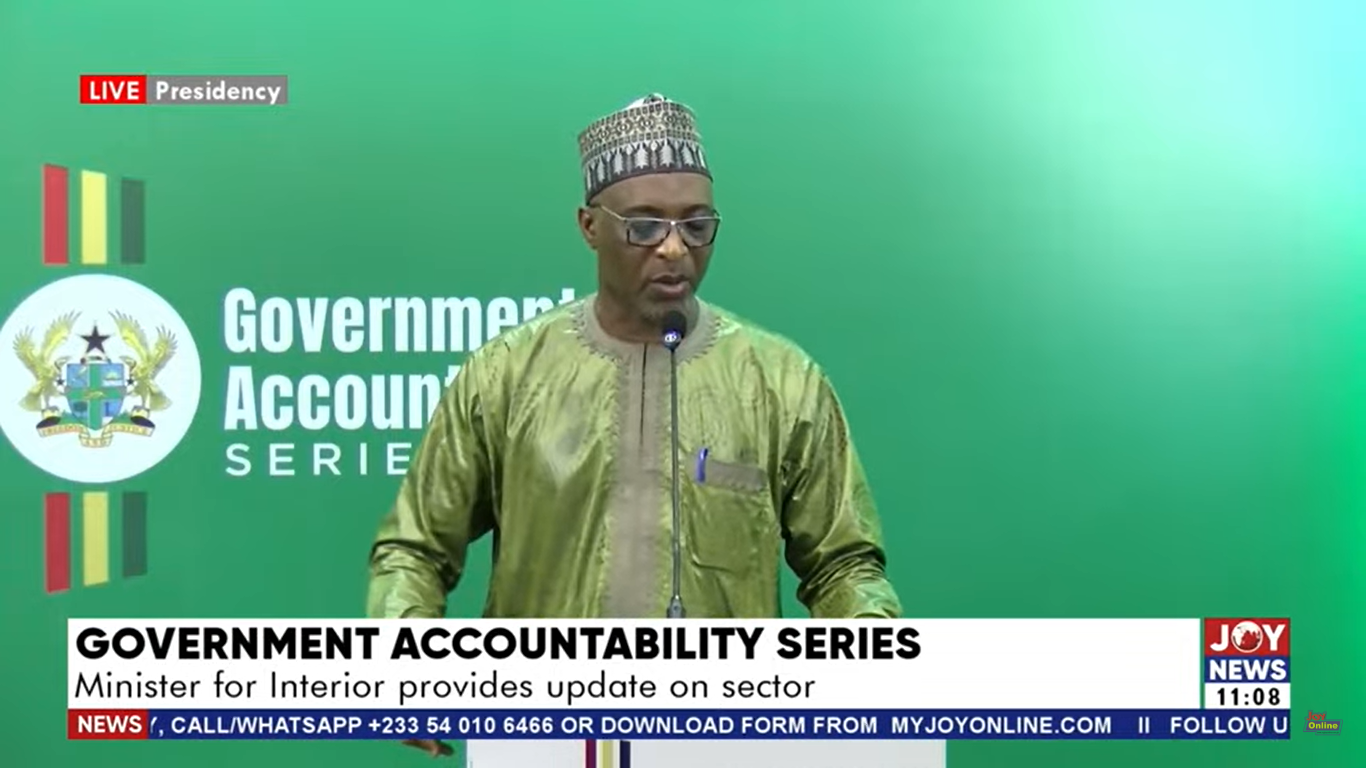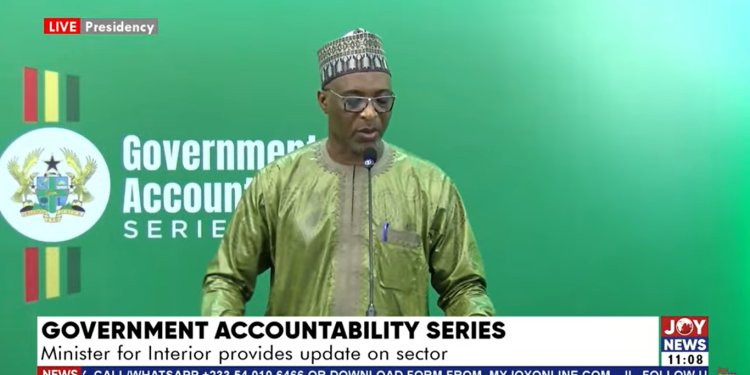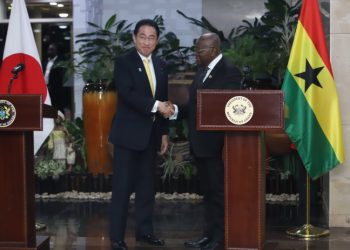
The Minister for the Interior, Mohammed Muntaka Mubarak, has announced sweeping reforms within the Ghana Prisons Service aimed at improving inmate welfare, enhancing nutrition, and equipping prisoners with employable skills for life after incarceration.
Speaking at the first session of the Government Accountability Series, Mr Mubarak highlighted the urgent need to tackle the long-standing challenges within the prison system, starting with the inadequate feeding allocation for inmates.
“As you may be aware, the feeding allocation for inmates is pegged at one Ghana cedi and 80 pesewas, an amount that is woefully inadequate and fails to meet basic nutritional needs,” he said.
To address this, the government has secured funding for a 5,000-layer poultry project and cultivated approximately 1,664 hectares of crops. According to the Minister, this agricultural initiative, supported by the Ministry of Food and Agriculture, will help improve nutrition for inmates and enhance the prisons’ capacity for self-sufficiency.
Beyond nutrition, Mr Mubarak outlined plans for a 24-hour economy programme within the Prisons Service, designed to align correctional facilities with national productivity goals.
“We are determined to shift from merely warehousing prisoners to transforming prisons into centres of economic activity and rehabilitation,” he explained. “This programme will harness the productive potential of inmates, contributing meaningfully to national development.”
As part of the reform agenda, the Prisons Service has launched a digital literacy programme under the ‘1M Coders’ initiative. The scheme targets inmates, officers, and their dependents, providing essential digital skills to open new pathways for empowerment and reintegration.
Recognising the need to strengthen human resources, the Minister highlighted a strategic partnership with the Youth Employment Agency to recruit support staff for non-custodial duties. “This collaboration is key to freeing up resources and allowing officers to focus on core custodial and rehabilitative roles,” he said.
In addition, the Minister revealed ongoing negotiations with the Ministry of Education to sign a Memorandum of Understanding (MoU) that will integrate vocational training with practical production.
“Once finalised, this MoU will enable the Prisons Service to produce 20 per cent of sanitary pads for the free sanitary initiative, 30 per cent of all school furniture, and 30 per cent of school uniforms distributed by the government,” Mr Mubarak disclosed.
He emphasised that the reforms represent a fundamental shift in Ghana’s correctional approach.
“Our goal is clear: to move beyond simply warehousing prisoners and keeping them idle. We are creating a system where inmates are actively rehabilitated and equipped to contribute to society upon release.”
DISCLAIMER: The Views, Comments, Opinions, Contributions and Statements made by Readers and Contributors on this platform do not necessarily represent the views or policy of Multimedia Group Limited.
DISCLAIMER: The Views, Comments, Opinions, Contributions and Statements made by Readers and Contributors on this platform do not necessarily represent the views or policy of Multimedia Group Limited.
- President Commissions 36.5 Million Dollars Hospital In The Tain District
- You Will Not Go Free For Killing An Hard Working MP – Akufo-Addo To MP’s Killer
- I Will Lead You To Victory – Ato Forson Assures NDC Supporters
Visit Our Social Media for More




